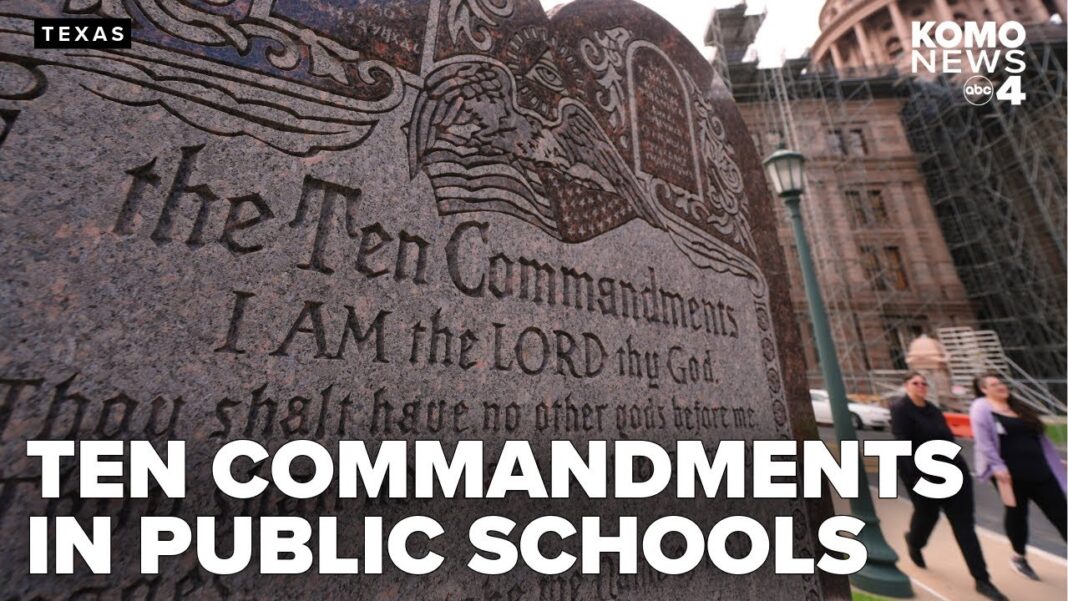Texas Attorney General Ken Paxton appealed the ruling to the U.S. Court of Appeals for the Fifth Circuit on Aug. 21.
A federal district court in Texas issued a preliminary injunction on Aug. 20, temporarily blocking a new state law that would have required public school classrooms to display the Ten Commandments.
U.S. District Judge Fred Biery of San Antonio ruled that Texas Senate Bill 10, set to take effect on Sept. 1, likely violates the “First Amendment respecting an establishment of religion or prohibiting free exercise.”
Texas has more than 1,200 public school districts. The ruling prevents 11 school districts, including Austin and Houston, from displaying the Ten Commandments under state law.
Biery stated that “S.B. 10 crosses the line from exposure to coercion” and that such permanent religious postings lack historical tradition.
“This Court finds there is insufficient evidence of a broad tradition in place at the time of the Founding, and within the history of public education, to justify S.B. 10,” the ruling said.
Texas Attorney General Ken Paxton appealed the ruling to the U.S. Court of Appeals for the Fifth Circuit on Aug.21, committing to defend the law.
“The Ten Commandments are a cornerstone of our moral and legal heritage, and their presence in classrooms serves as a reminder of the values that guide responsible citizenship. Texas will always defend our right to uphold the foundational principles that have built this nation, and I will absolutely be appealing this flawed decision,” Paxton said in a statement to the Independent.
Legal Precedent
Texas is the third state in which courts have blocked recent laws on posting the Ten Commandments in public schools.
The U.S. Court of Appeals for the Fifth Circuit ruled a similar law in Louisiana unconstitutional in June. On Aug. 4, a federal judge in Arkansas blocked that state’s requirement in four school districts.
A broader lawsuit, which names three Dallas-area school districts, the state education agency, and the education commissioner, is pending in federal court.
Additionally, in 1980, the Supreme Court held that a Kentucky statute requiring the posting of the biblical Ten Commandments on a public school wall violated the establishment clause of the First Amendment because the law had no secular legislative purpose.
A Ten Commandments monument stands on the Texas Capitol grounds, which was upheld by a 2005 Supreme Court ruling. The Court’s primary holding stated that “the Establishment Clause does not prohibit per se all forms of government action that may have religious content or a religious message.”
By Sylvia Xu








